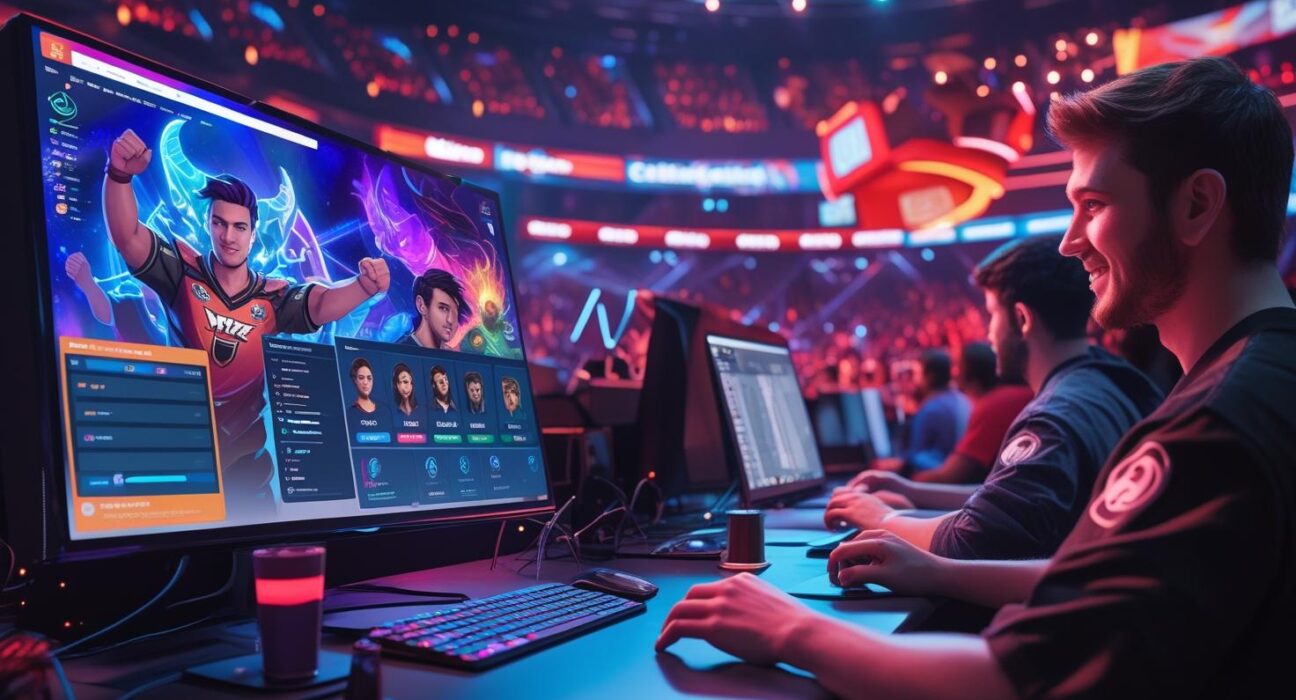In the hypercompetitive, ever-evolving world of iGaming and fantasy sports, a new powerhouse is emerging—Fantasy Esports. While fantasy football and daily fantasy sports (DFS) have already carved out billion-dollar industries, the rise of esports has introduced a tantalizing new frontier that fuses the worlds of gaming, sports fandom, and real-money strategy.
Fantasy esports is no longer just a niche experiment. It’s becoming a standalone vertical—one with the potential to reshapeThe Next Market Disruption? Gambling on Wearables betting, fan engagement, and digital entertainment as we know it.
What is Fantasy Esports?
Just like traditional fantasy sports, fantasy esports allows users to draft teams of professional esports players and earn points based on their real-world performance. The difference? The sports are video games—like League of Legends, Dota 2, Counter-Strike, Valorant, and Call of Duty—and the fans are often younger, digitally native, and incredibly loyal.
Formats range from:
- Season-long leagues
- Daily fantasy contests (DFS)
- Pick’em prediction games
- Head-to-head betting brackets
With tournaments running globally year-round, fantasy esports offers a nonstop content pipeline, appealing to both traditional fantasy players and hardcore gamers.
Why It’s Exploding Now
Several factors are converging to make fantasy esports a serious force:
- Booming Esports Viewership: Over 500 million fans globally—and growing fast.
- Streaming Integration: Twitch and YouTube make player performances accessible in real time.
- Gen Z Affinity: Digital-first fans prefer gaming content over traditional sports.
- COVID Acceleration: With traditional sports on hold in 2020–2021, esports filled the entertainment void.
- Crypto + NFTs: Fantasy esports platforms are experimenting with blockchain to issue player cards and rewards.
The result? A market that’s primed for exponential growth—and attracting venture capital.
Platforms Leading the Charge
The fantasy esports space is still young, but a few players are breaking away from the pack:
- DraftBuff – Free-to-play fantasy for League of Legends, Overwatch, and more.
- Sleeper – Originally a fantasy NFL app, now dabbling in esports tournaments.
- ESPN Fantasy Esports – Offers bracket games around Worlds and Majors.
- FanClash – India-based platform focusing on daily contests for mobile-first markets.
- Monkey Knife Fight (MKF) – Offered prop-style esports fantasy before being acquired by Bally’s.
Startups and sportsbooks alike are betting that fantasy esports could be the Trojan horse into Gen Z gambling habits.
Challenges to Scale
While the potential is massive, fantasy esports must overcome several hurdles:
- Lack of Standardized Stats: Not all games have APIs or consistent performance metrics.
- Licensing Ambiguity: Not all game publishers approve of monetized fantasy usage.
- Game Lifespan: Esports titles can rise and fall quickly, making platform investment risky.
- Legal Grey Zones: Is it skill-based or gambling? Depends on the jurisdiction.
- Player Education: Fans know the games—but not all understand fantasy mechanics.
Smart platforms are now focusing on UI simplicity, partnerships with teams, and community-building to overcome these issues.
Monetization Models Evolving
Fantasy esports is not just a marketing gimmick. It’s becoming a serious business.
Platforms are exploring:
- Freemium models (with skins or crypto as prizes)
- Real-money DFS contests
- NFT-based player cards
- Sponsorship deals with esports orgs
- Streaming integrations with Twitch extensions
In-app purchases and ad revenue are just the beginning. The long-term play? Owning esports fan data—the most valuable currency in digital entertainment.
Why This Isn’t Just Fantasy Sports 2.0
Fantasy esports is not simply a clone of NFL-style fantasy. The DNA is different:
- Games update every week (meta shifts)
- Players stream their own POVs
- Global events run year-round
- Real-time chat and memes drive fan engagement
- Younger, more vocal, mobile-first audience
It’s a hybrid of fantasy, social media, esports fandom, and crypto culture.
And it’s creating a new category of fan economy.
Legal & Compliance Terrain
As with any form of wagering, fantasy esports sits on a legal knife’s edge.
Key questions:
- Is it a skill game or gambling?
- Are esports publishers licensing player usage?
- Can under-18 players participate?
- How do you geofence for compliance?
The regulatory answers vary:
- In the US: Skill-based fantasy is often allowed, state by state
- In Europe: Depends on the country; UKGC has started reviewing fantasy esports rules
- In Asia: Heavily restricted, but crypto-based platforms may emerge
Lawyers are watching closely.
What’s Next in Fantasy Esports
Expect the next 12–24 months to see:
- Game-specific fantasy platforms (e.g., Valorant-only apps)
- Tokenized fantasy leagues where users own in-game assets
- Twitch-integrated drafts and watch parties
- Esports orgs launching their own fantasy contests
- AR/VR interfaces for immersive drafting and gameplay
Also likely? Big brands entering the space. Nike, Red Bull, and even crypto casinos could be sponsoring fantasy contests tied to big tournaments.
Conclusion: A Category to Watch (and Invest In)
Fantasy esports is doing more than borrowing from fantasy football.
It’s:
- Creating new user behavior
- Merging multiple fan ecosystems
- Redefining how we experience professional gaming
With every tournament streamed, every roster shuffled, and every bet placed, this vertical grows stronger—and more vital to the future of digital betting and entertainment.
In short, fantasy esports isn’t a feature.
It’s a category.
And it’s only getting started.
Stay tuned at JackPotDiary, where we cover the bleeding edge of iGaming—from fantasy to fraud, and everything in between.











